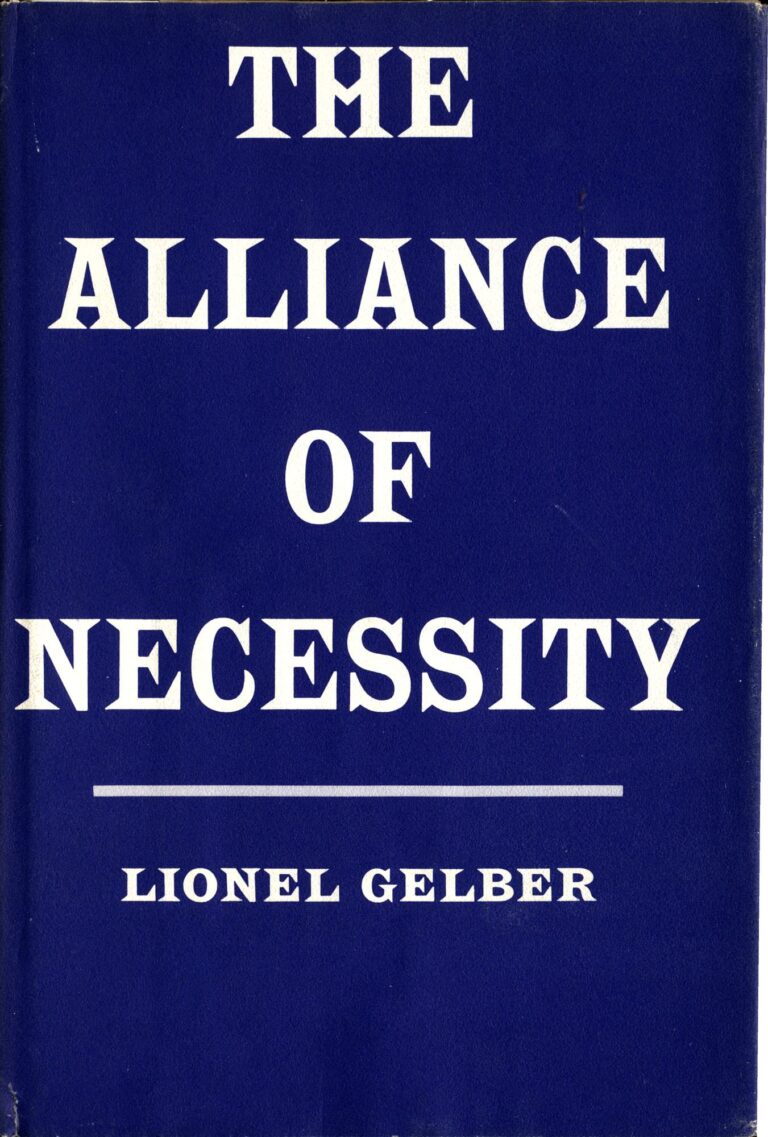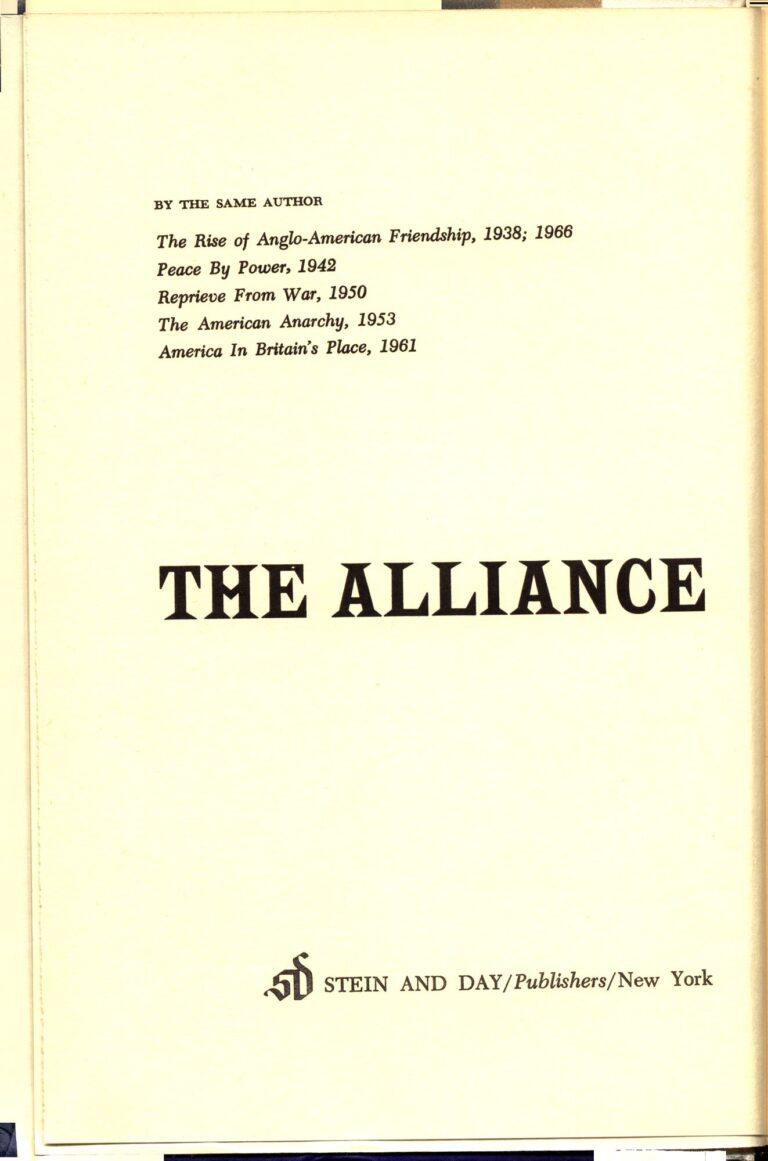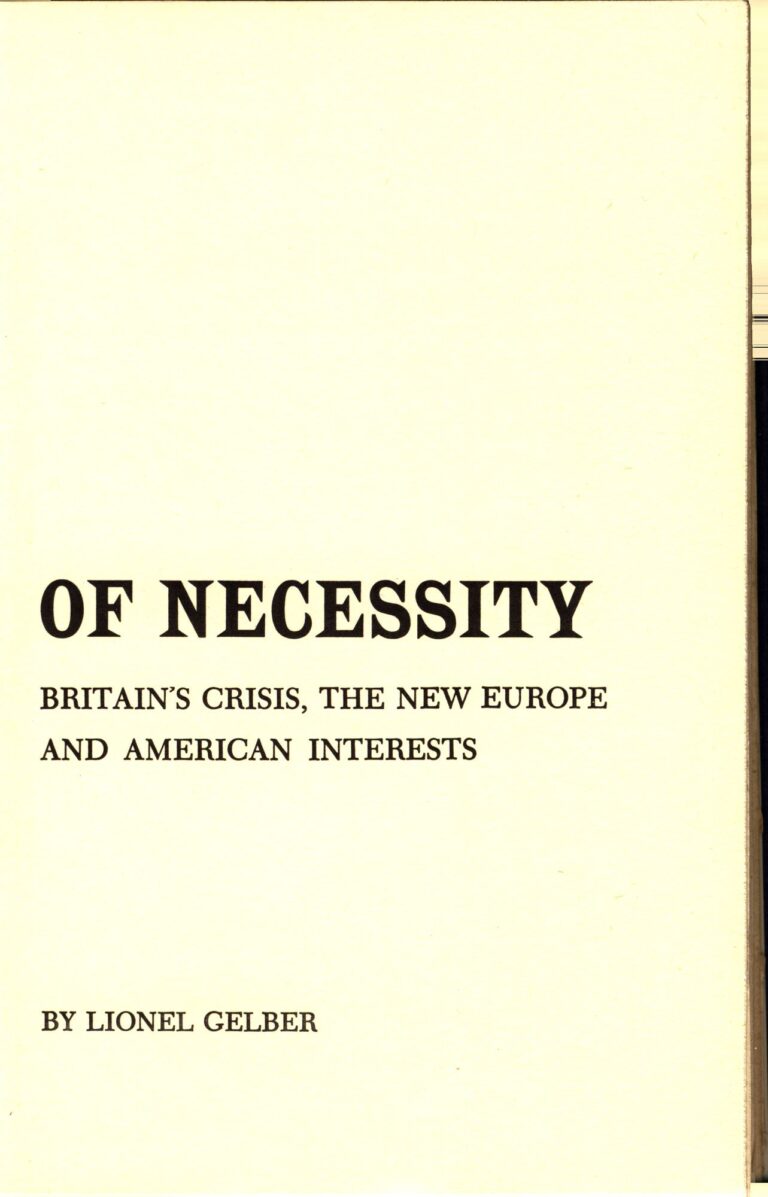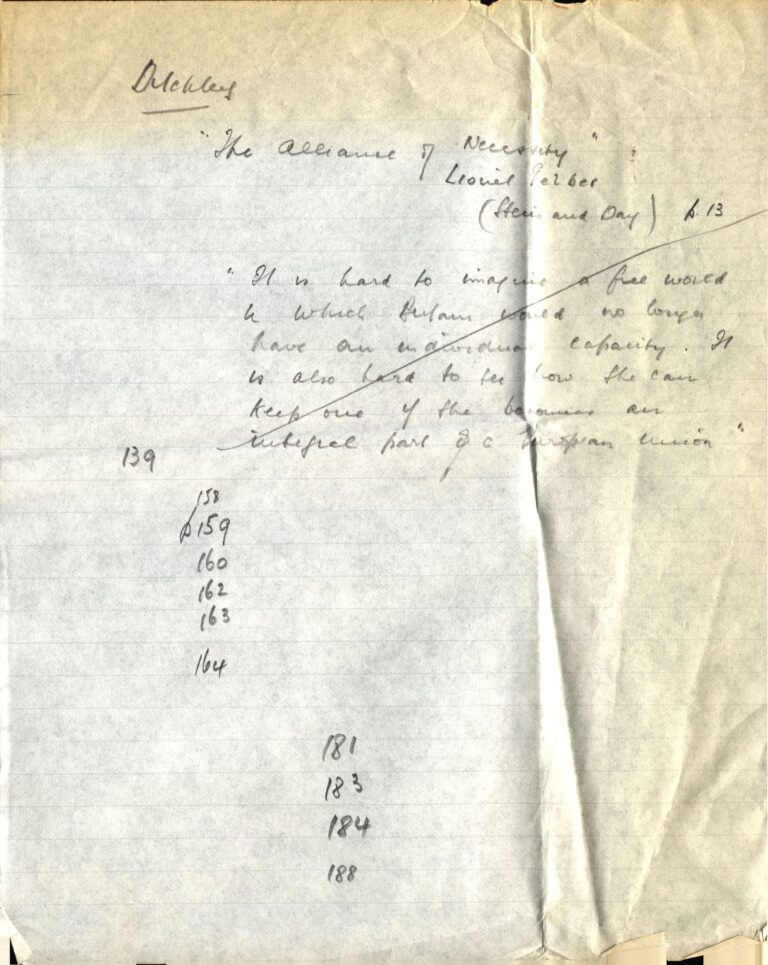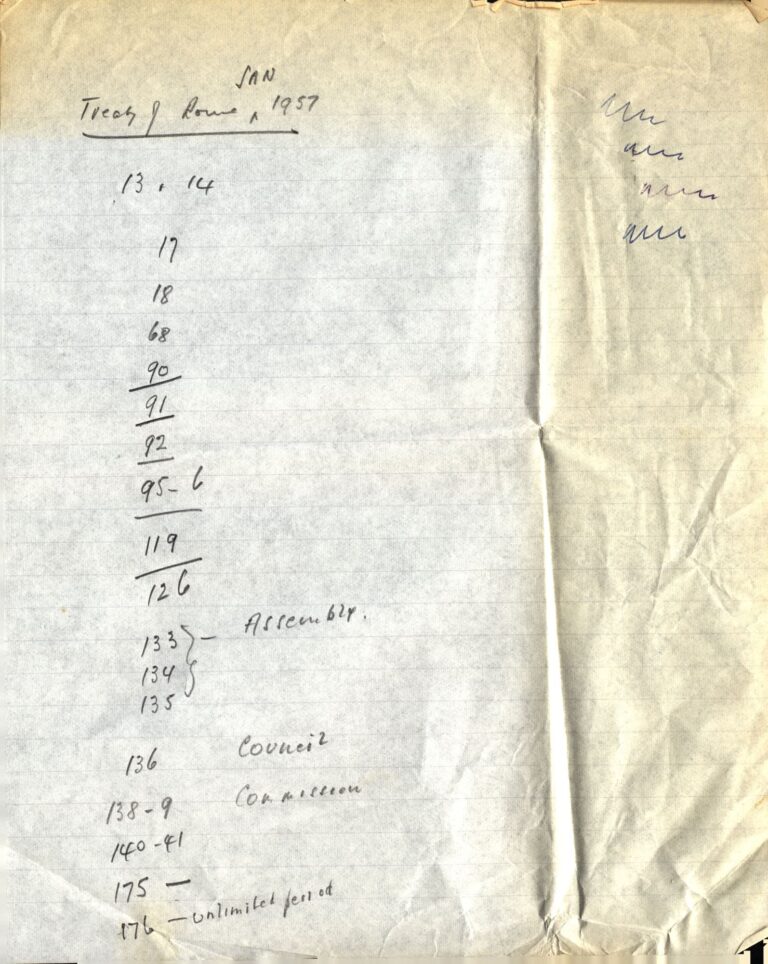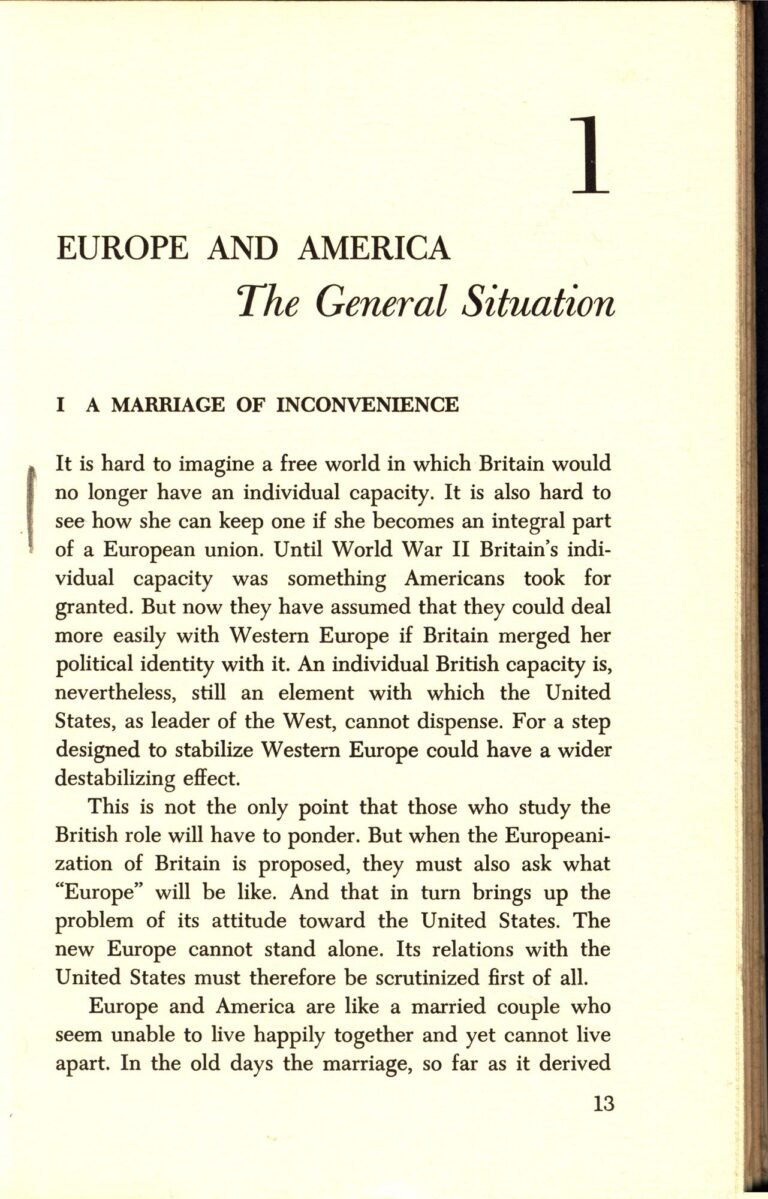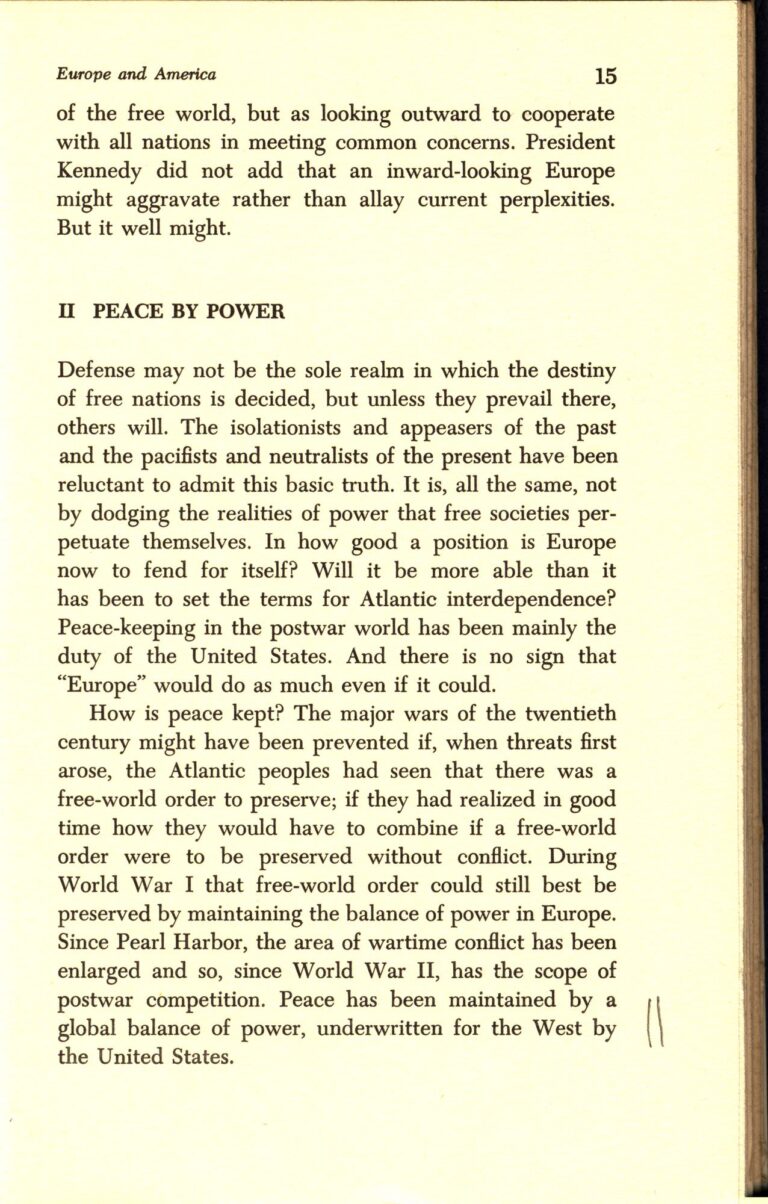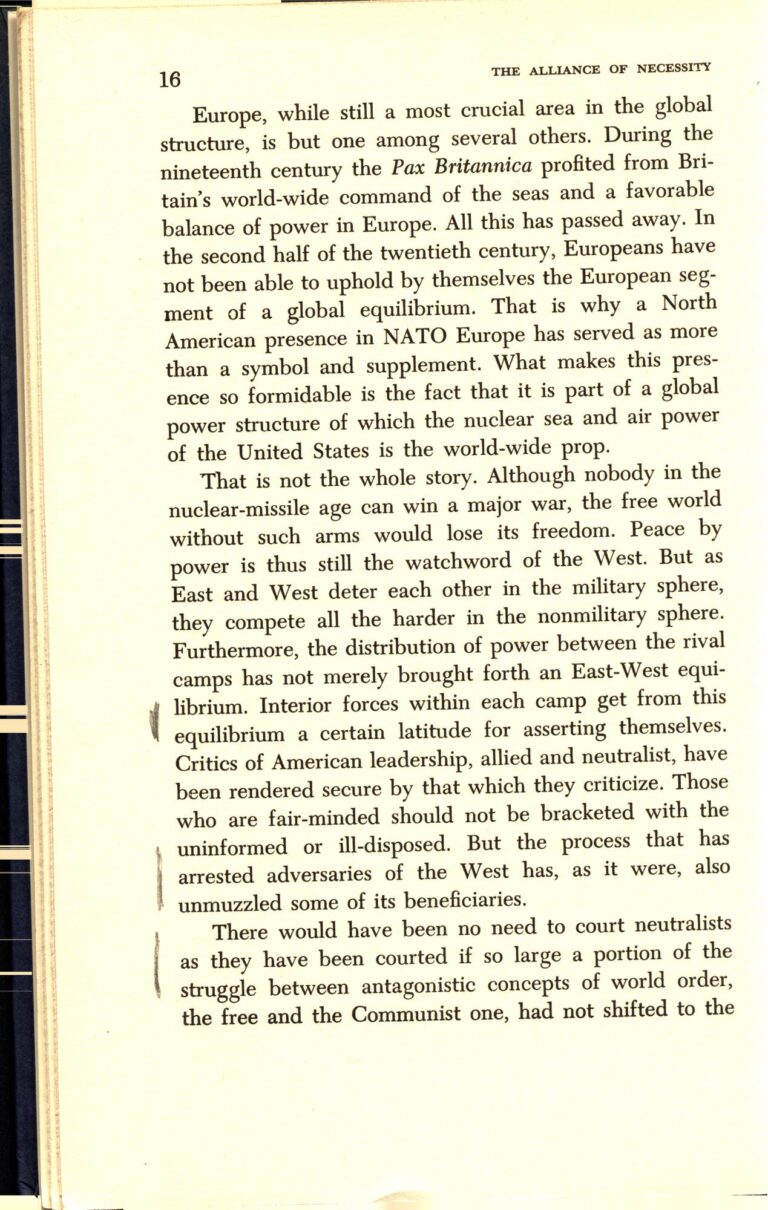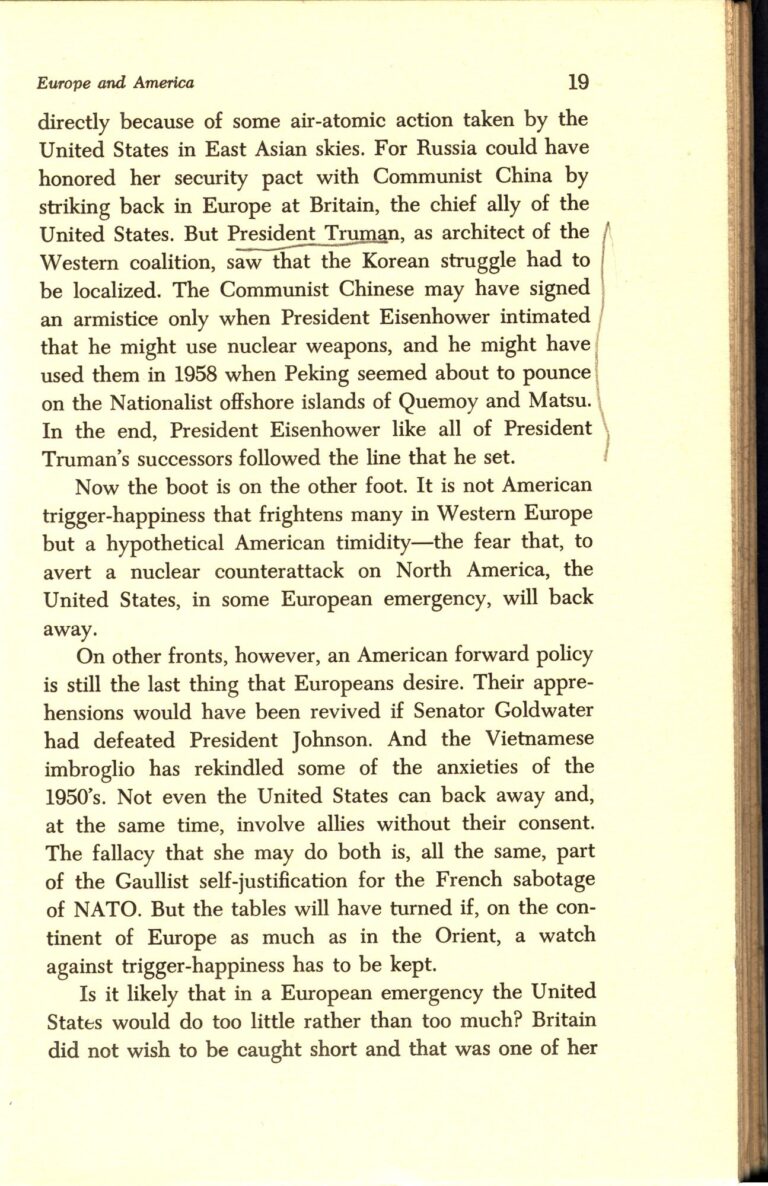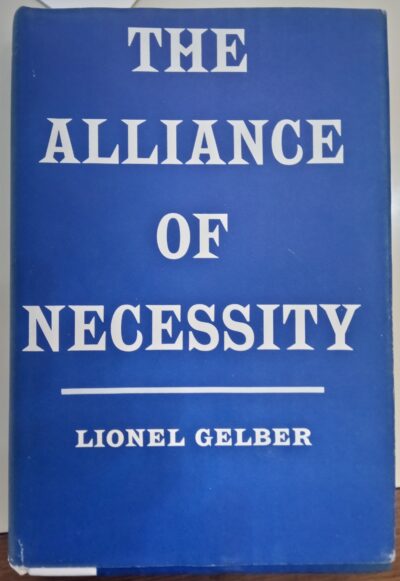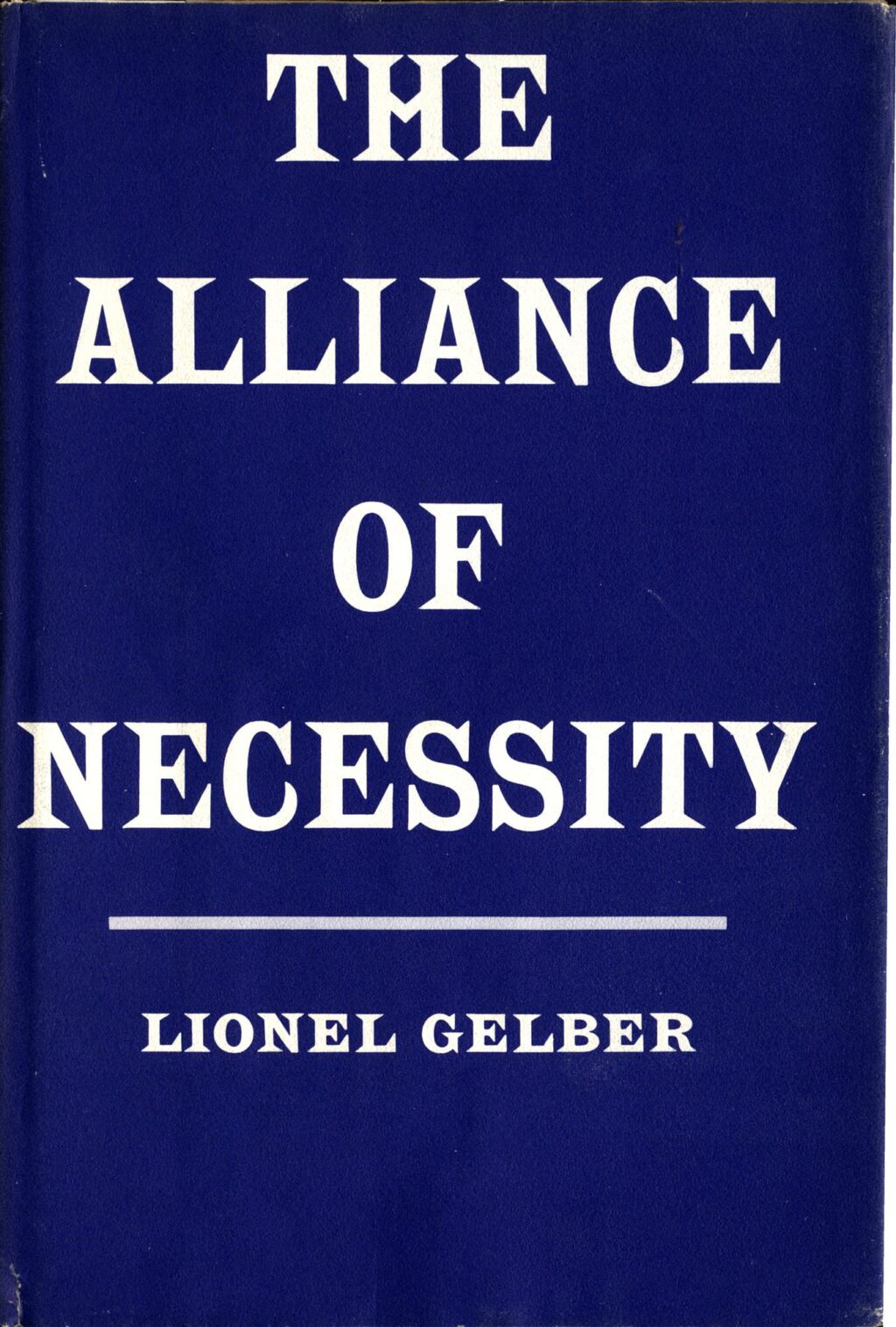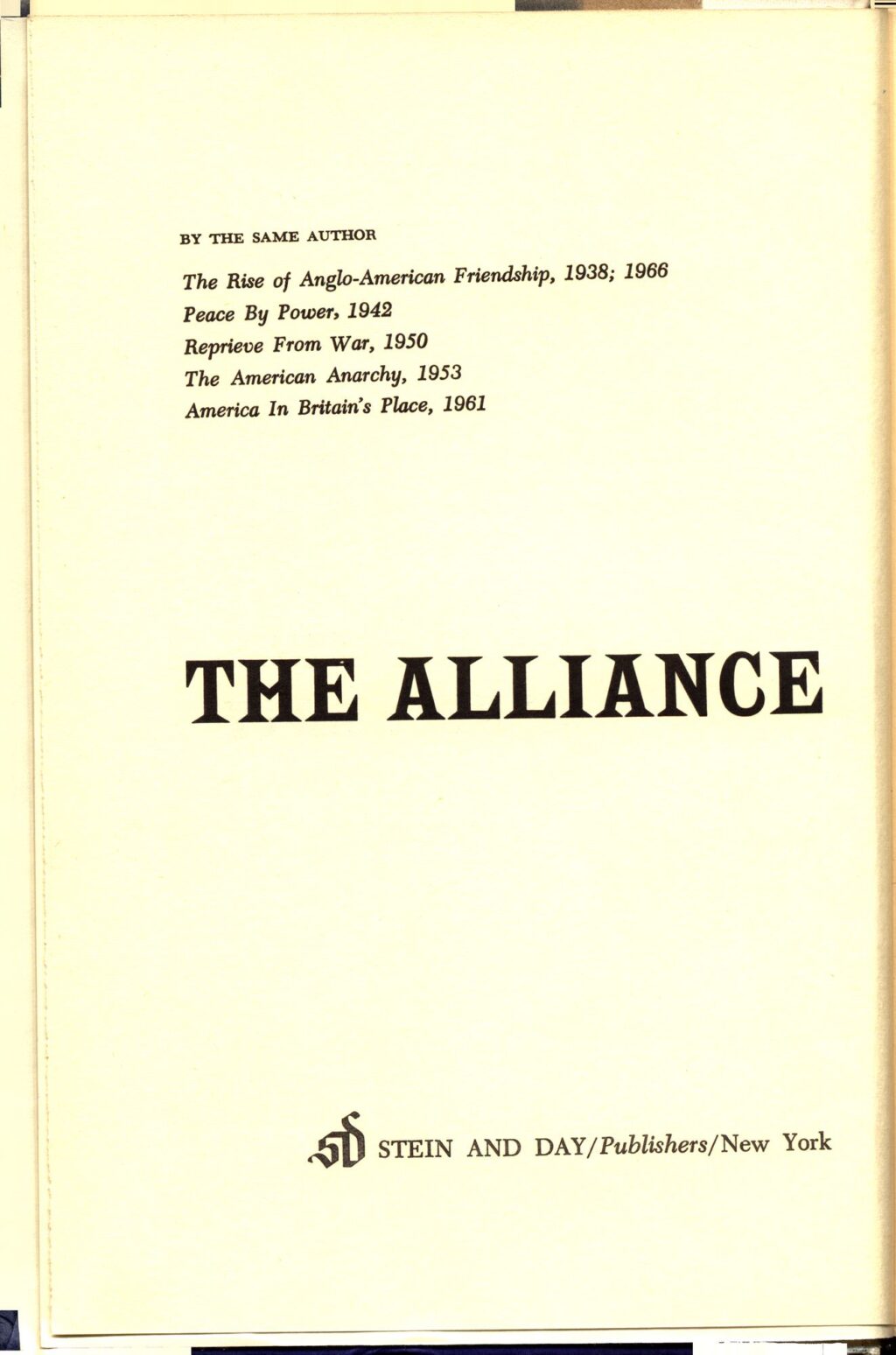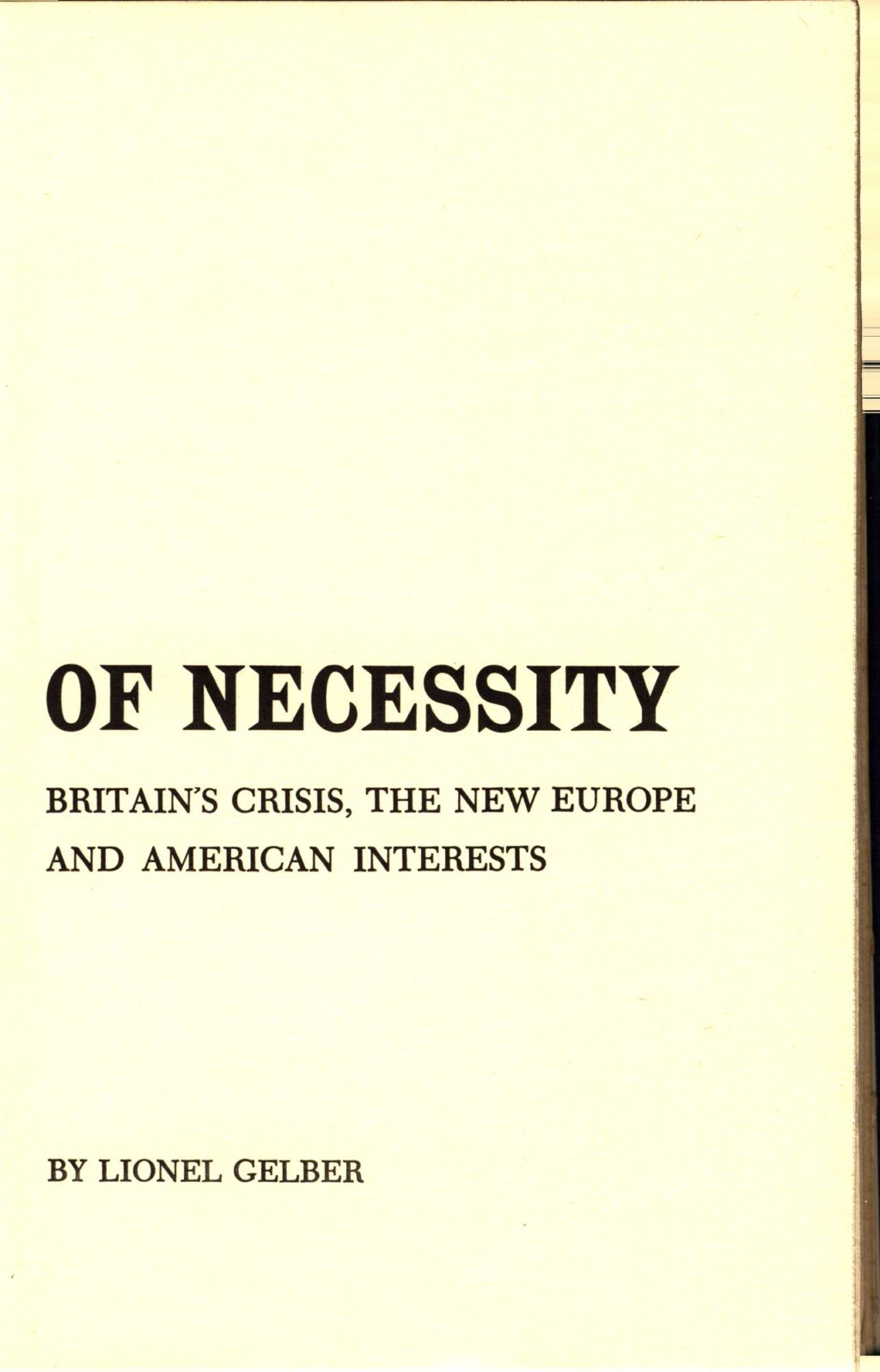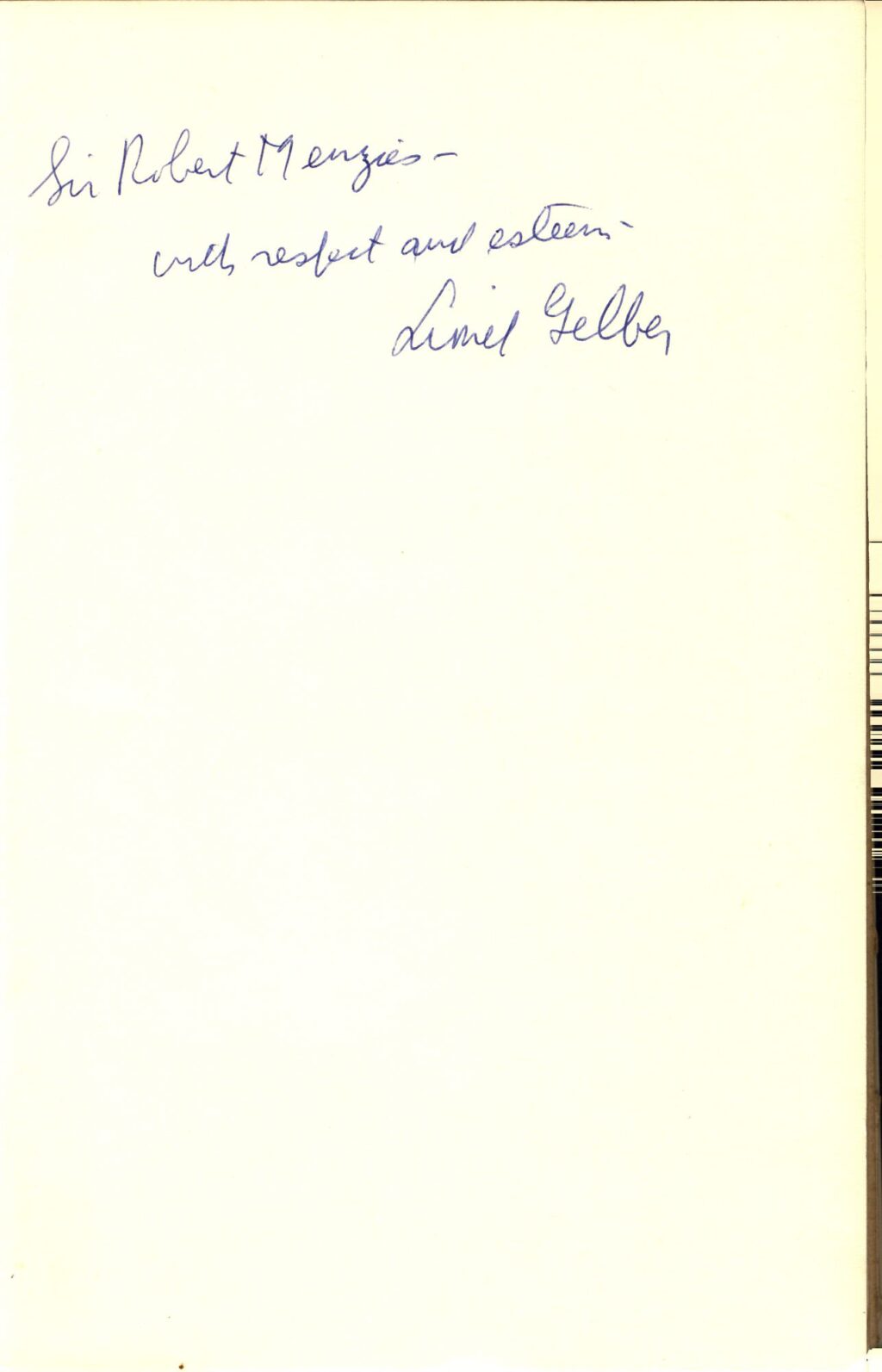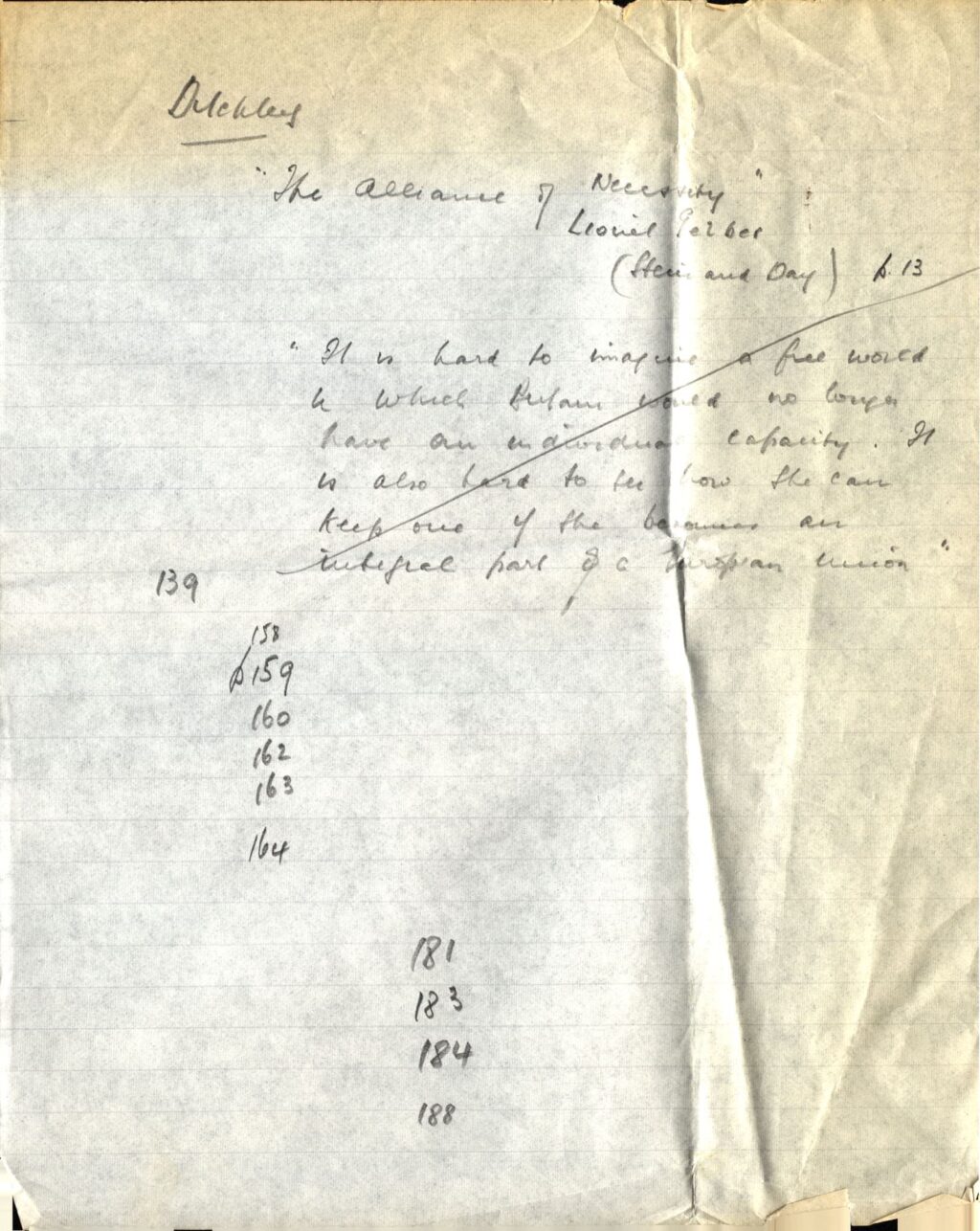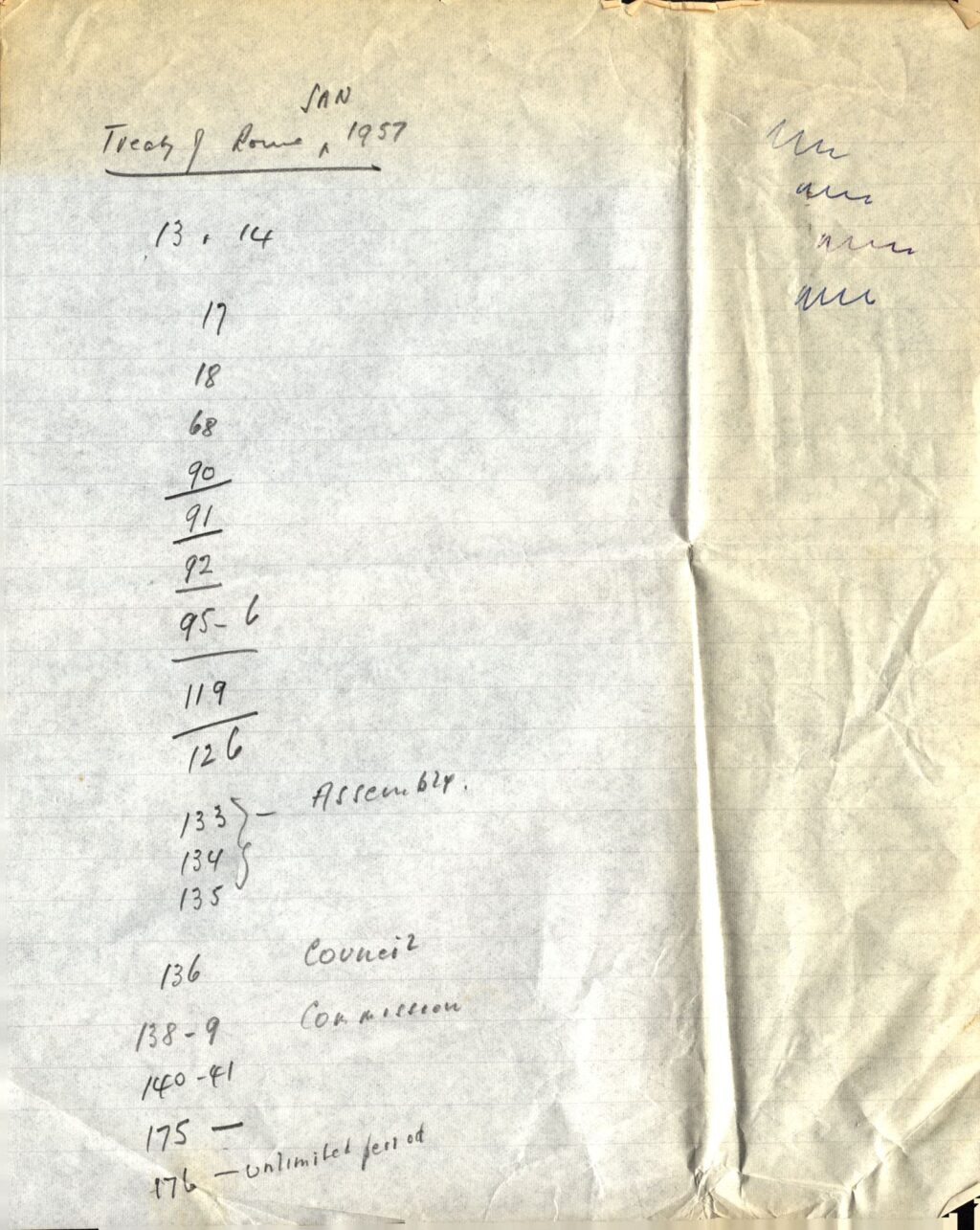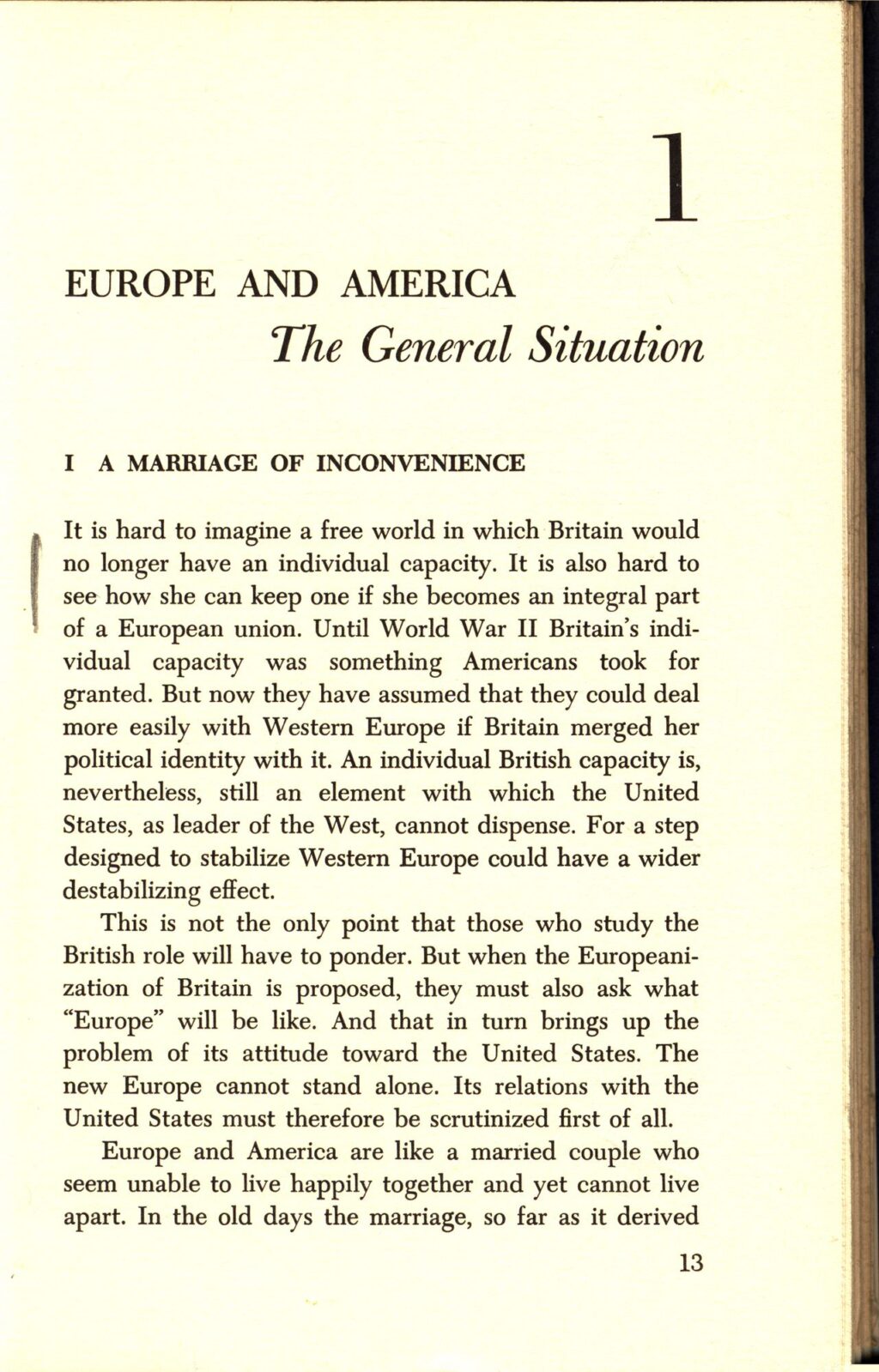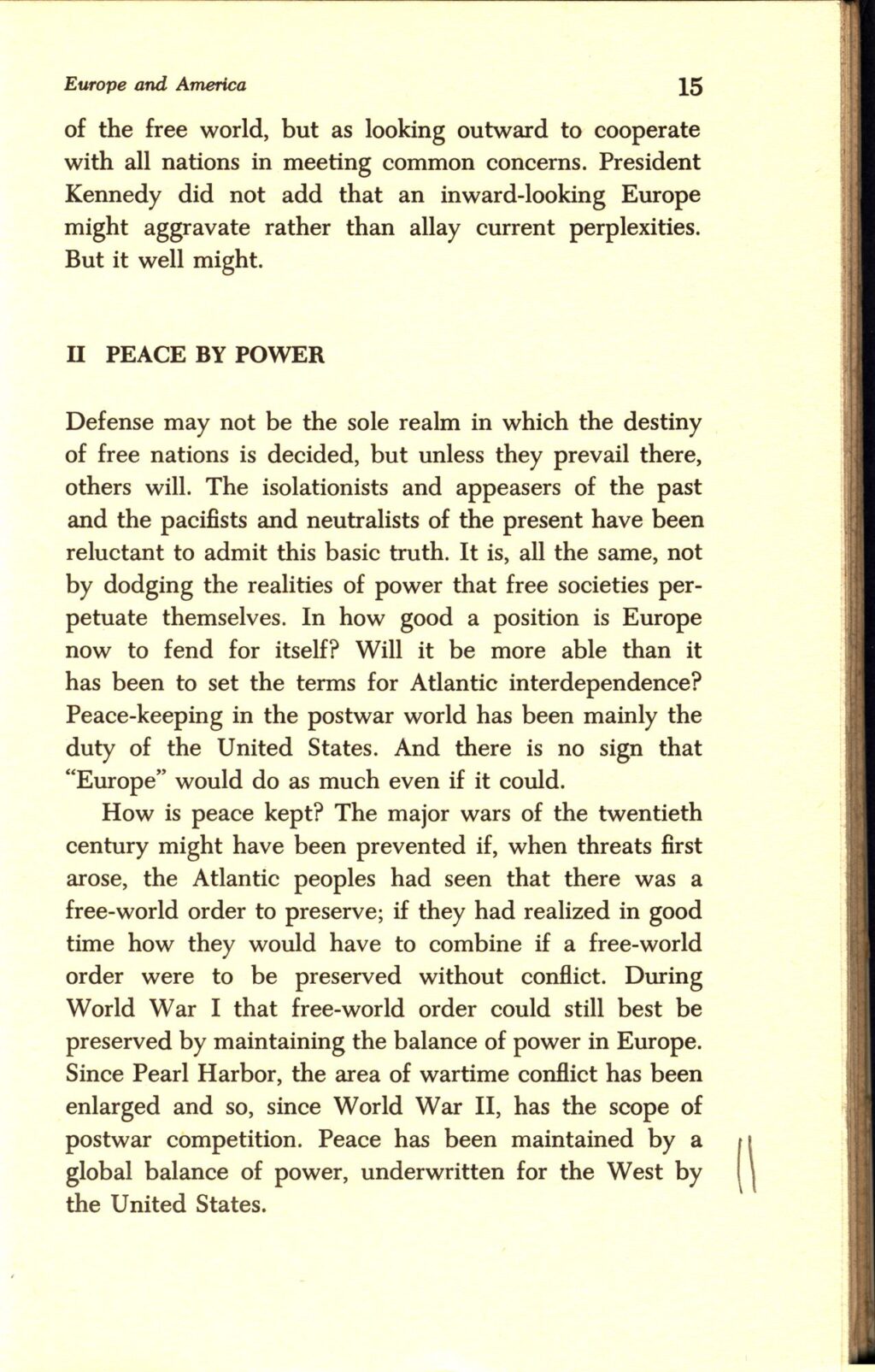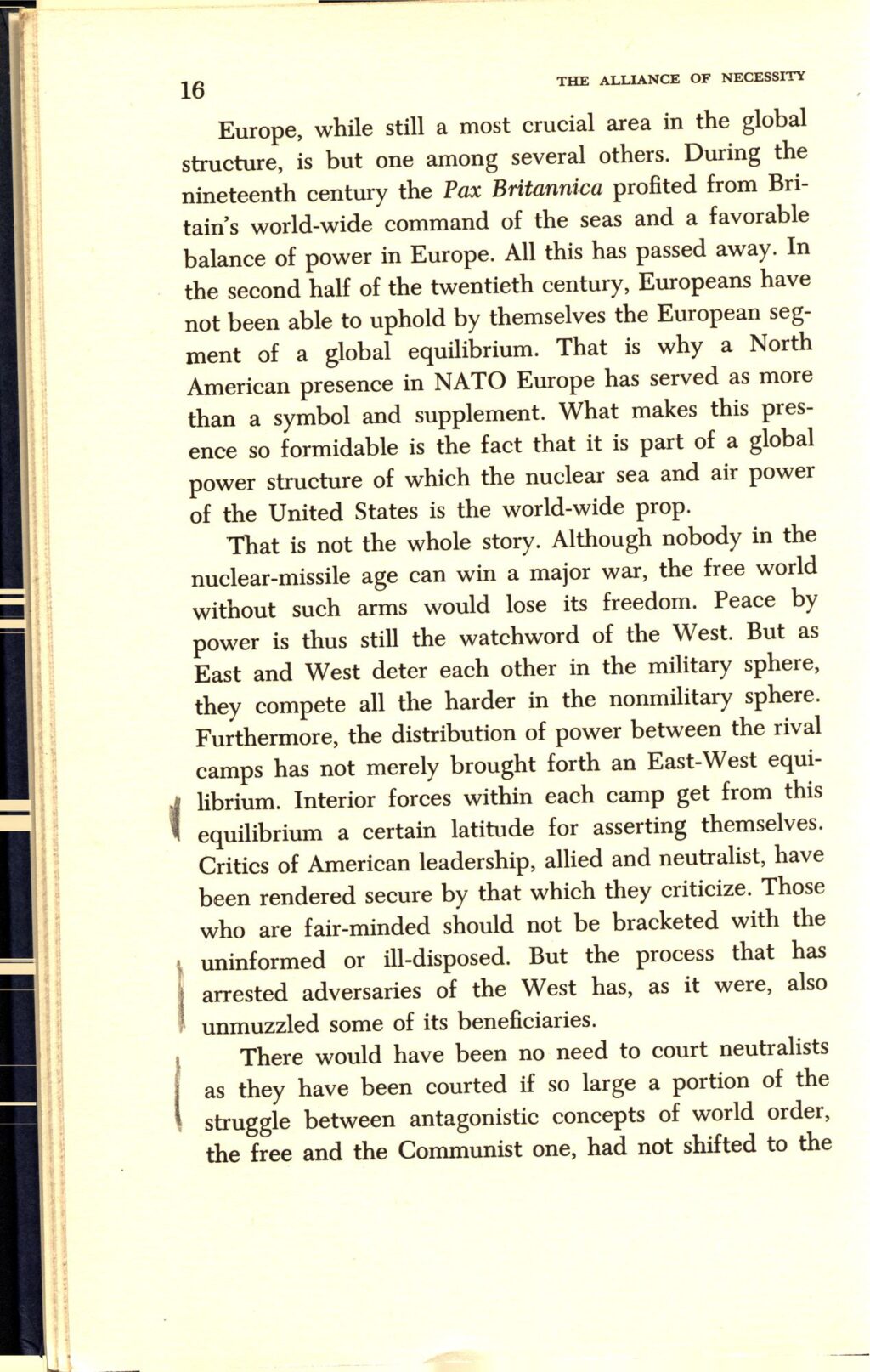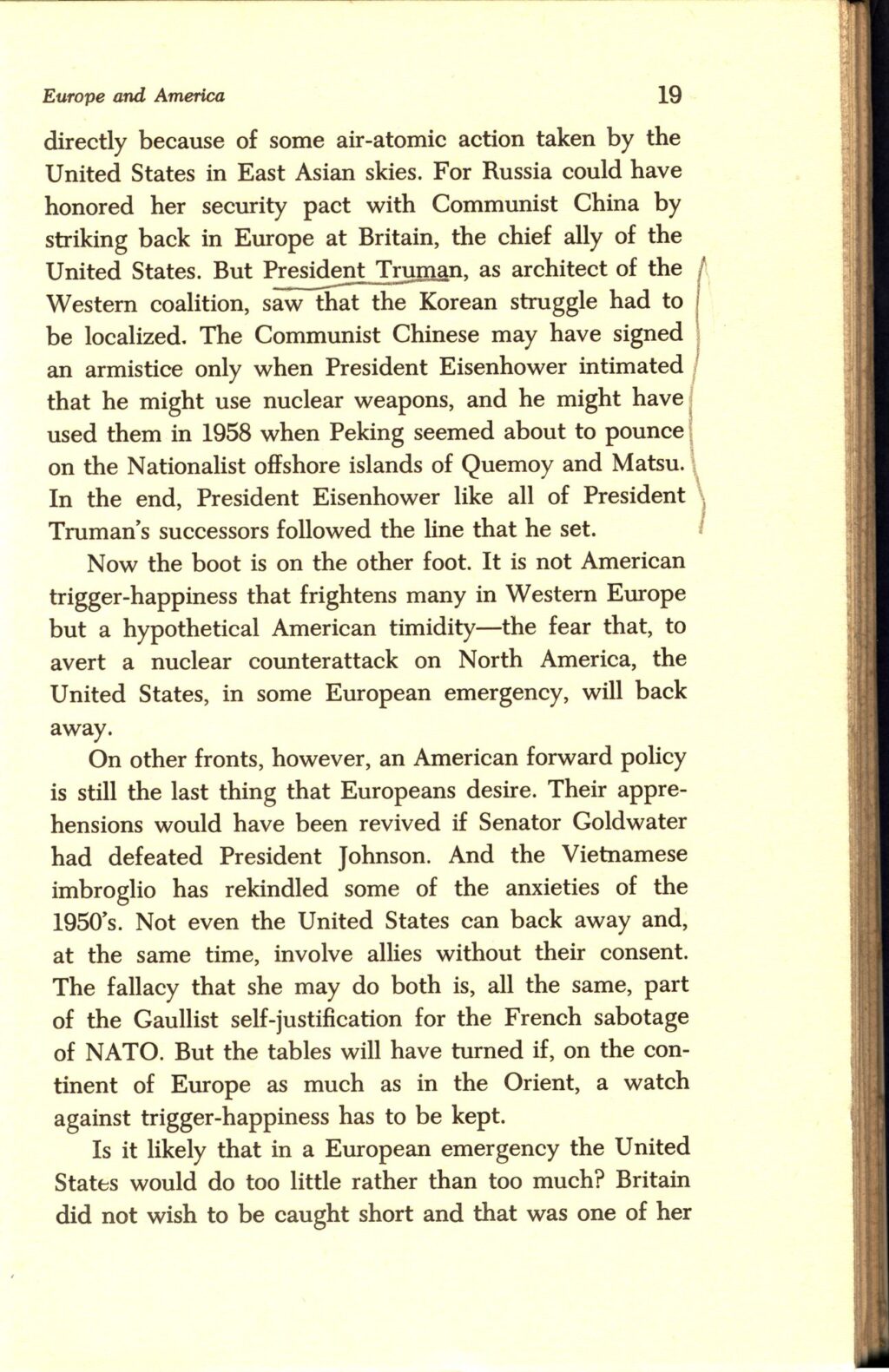| Entry type: Book | Call Number: 798 | Barcode: 31290035201789 |
-
Author
Gelber, Lionel
-
Publication Date
1966
-
Place of Publication
New York
-
Book-plate
No
-
Edition
First
-
Number of Pages
192
-
Publication Info
hardcover
Copy specific notes
Inscribed in blue ink on front endpaper: “Sir Robert Menzies – with respect and esteem. Lionel Gelber”. Includes two loose pages of notes in pencil. First reads: “Treaty of Rome Jan 1957 [underlined] 13, 14 [,] 17 [,] 18 [,] 68 [,] 90 [underlined ,] 91 [underlined ,] 92 [underlined ,] 95 – 96 [underlined ,] 119 [underlined ,] 126 [,] 133 134 135 Assembly [,] 136 Council [,] 138 – 9 Commission [,] 140 -41 [,] 175 – [,] 176 – unlimited period”. Second note reads: [indecipherable heading] “”The Alliance of Necessity” Lionel Gelber (Stein and Day) p. 13 “It is hard to imagine a free world in which Britain would no longer have an individual capacity. It is also hard to see how she can keep one if she becomes an integral part of a European Union” [quoted text crossed out] 139 [,] 158 [,] 159 [,] 160 [,] 162 [,] 163 [,] 164 [,] 181 [,] 183 [,] 184 [,] 188.” These numbers correspond with the page numbers where Menzies has highlighted passages in the next text. The second quote is also underlined in pencil on page 13. Further highlights from book in pencil include the following quotes: “Peace has been maintained by a global balance of power, underwritten for the West by the United States.” [p. 15]; “Furthermore, the distribution of power between the rival camps has not merely brought forth an East-West equilibrium. Interior forces from within each camp get from this equilibrium a certain latitude for asserting themselves. [;] Those who are fair minded should not be bracketed with the uninformed or ill-disposed. But the process that has arrested adversaries of the West has, as it were, also unmuzzled some of its beneficiaries. There would have been no need to court neutralists as they have been courted if so large a portion of the struggle between antagonistic concepts of world order, and the free and the Communist one, had not shifted to the non-military sphere.” [pp. 16 – 17]; “But President Truman, as architect of the Western coalition, saw that the Korean struggle had to be localised. The communist Chinese may have signed an armistice only when President Eisenhower intimated that he might use Nuclear weapons, and he might have used them in 1958 when Peking seemed about to pounce on the Nationalist offshore islands of Quemoy and Matsu. In the end, President Eisenhower like all of President Truman’s successors followed the line that he set.” [p. 19]; “Not that the English-speaking people always understood their own positions. The Suez imbroglio of 1956 showed the depths of the misunderstandings that still yawned between Britain and the United States. France and Britain were couple in the Suez venture. After the United States torpedoed that venture, West Europeans had less faith in American leadership and, hurrying to sign the Treaty of Rome by which the Common Market was established, were more and more disposed toward some fuller union.” [p. 139]; “Thanks to the obduracy of Gaullist France, Britain may still retain the necessary latitude. Britain can function as a European regulator only if she maintains a certain detachment from Europe.” [p. 158]; “This was shortsighted. As leader of the West, the United States should want all Commonwealth countries to prosper. Instead she waged a long campaign against the Commonwealth trade preferences.” [p. 159]; “Australia and New Zealand have had their security against a renewal of Japanese aggression in the South Pacific underwritten by the United States. Today, with China on the rampage, Japan has virtually joined their circle. It is to Japan – as well as to Britain and the United States – that Australia and New Zealand are now looking for markets. No other Commonwealth countries have so cherished the British connection. But their public men have realized since the Brussels negotiations that they and Britain could soon be at a parting of ways.” [p. 159]; “Commonwealth links have provided Canada with a counterpoise against total absorption by her great American neighbour. But if this counterpoise vanished, as it would be if Britain is Europeanized, Canadians would be more hard-pressed than ever to maintain a national identity.” [pp. 159 – 160]; “If India or Pakistan left the Commonwealth, the blow would be heavy – but not fatal. The secession of its pivotal British member is what would do most break up the Commonwealth – and only the Europeanization of Britain would make her secession necessary.” [pp. 162 – 163]; “The West would have been convulsed if there had been a British veto in the Security Council of the United Nations on the American naval quarantine of Castro’s Cuba. Such a step was, nevertheless, demanded by the Guardian, a liberal British newspaper that has usually been pro-American” [p. 164]; “1. Britons and Americans alike must see the Commonwealth as it is. It is not entirely dwelling apart from Britain.” [p. 181]; “The annals of the twentieth century, nevertheless, bear witness to the cardinal fact that an Atlantic world in which the United States comes first would be a more tolerable one for Britain and other free peoples than one in which the French and West Germans have the final say.” [p. 183]; “What Washington and London must ask themselves is clear: is Brussels, in default of any other, to become the economic focus of the West? Would it not be better for all free peoples if this were to be in Washington rather than Brussels? And how can the United States lead the West politically if she lead the West politically if she lets the new Europe rule the roost economically?” [p. 184]; “Divergences will yawn periodically between the United States and Britain. We study the past in vain if we do not expect that to occur. But the past also reveals what the entire free world owes to Anglo-American friendship – and history will not let off lightly those in Washington or in London who may be tempted to ignore its lesson.” [p. 188].
Related entries
You might also like...
Sign up to our newsletter
Sign up for our monthly newsletter to hear the latest news and receive information about upcoming events.

